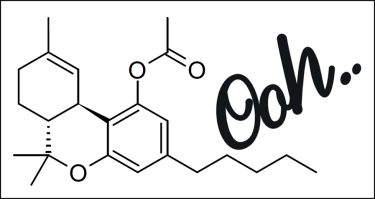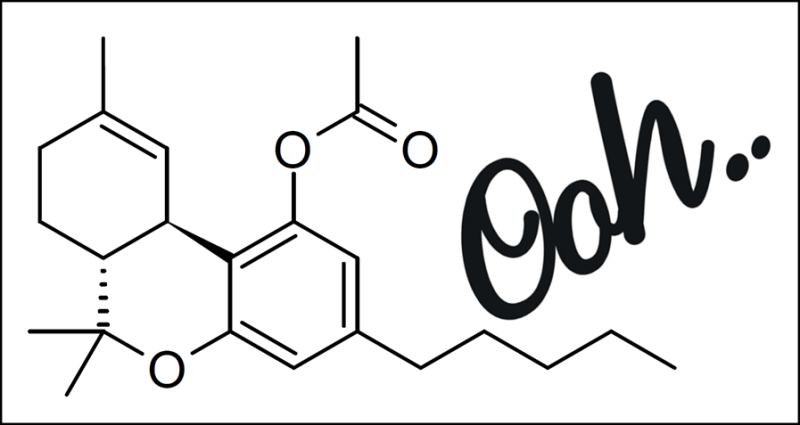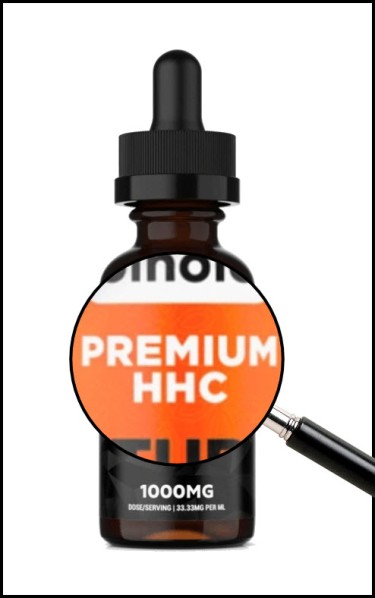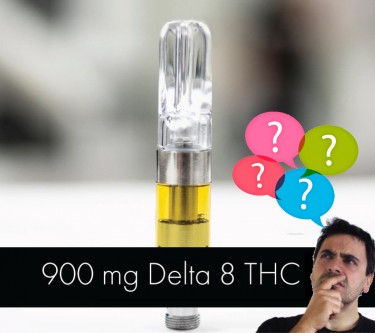What is THC-O and How Is It Made?

As a cannabis enthusiast, your first reaction to learning about THC-O — a cannabinoid 3 times stronger than THC might be that of shock, cheerfulness, or bemusement. In fact, you might even consider it a blessing. But whatever the case may be, it is important to educate the general public on the borderline psychedelic and cosmically powerful THC-O.
THC-O is also a derivative of cannabis and it's said to be 300% more powerful than the most astronomical THC. Curious potheads, this is not the time to throw caution off the wind experimenting with THC-O. No doubt THC-O is available for purchase online but whether or not it is safe for consumption is still debatable. While THC-O might be the holy grail to varsity stoners due to its high potency, several individuals are trying to understand its medicinal properties. Believing just maybe its medicinal properties will be just as powerful.
In the quest to discover the root of this relatively unique cannabinoid, we'll be looking at how THC-O is derived, and how safe it is or isn't for consumers. Most especially for consumers who need to medicate with something stronger than the usual dispensary fare.
What is THC-O?
THC-O or THC-O acetate is a synthetic derivative (simply put, chemical twin) of THC. What this means is that while THC-O is truly a cannabinoid, it is not naturally occurring. THC-O is produced through a chemical process via contemporary cannabis tech and a toxic chemical known as acetic anhydride. The overall process converts 9 THC into THC-O acetate.
To produce THC-O, a series of extractions must first take place. First on the list is the extraction of cannabidiol from less than 0.3% THC hemp. Next, is the extraction of delta-8 THC from the CBD that was first extracted. Lastly, the organic solvent, acetic anhydride, is introduced to the delta-8. THC molecules. This helps to remove all flavonoids and terpenes leaving behind a scentless, flavorless, and oil-thick THC isolate with polarizing efficacy.
Presently, data, regulations, and research on THC-O acetate and its effects are minimal. However, researchers have inferred that THC-O is a prodrug. Meaning, it needs to be metabolized before it is activated. Immediately THC-O is metabolized, what's left is a variation of delta-9 THC which is absorbed and transported within the body. Scientists speculated that the increase in potency is a result of its bioavailability.
Is THC-O legal?
Presently, THC-O is considered legal given it is produced from federally legal hemp. The fact that it does not contain any delta-9 THC also makes it legal for use.
However, the truth is, the chemical composition and potency of THC-O do indicate an uncertain future. Even though THC-O is produced from hemp it could be said to be a Schedule I drug (marijuana) citing the 1986 Federal Analogue Act. But, provided its source can be traced back to federally legal hemp, THC-O will continue to exist in a gray area. This will allow THC-O to easily slip under the regulatory radar for the time being.
With that being said, there are several reputable hemp brands presently advertising their THC-O products for purchase online. While the potency of the THC-O may prompt the curiosity of stoners for recreational use, there's still the need to be cautious. THC-O not being a naturally occurring cannabinoid raises concerns considering its very volatile manufacturing process.
How Safe Is THC-O?
Right now, it's difficult to give a definite answer. In the past, the market has seen some synthetic versions of THC. For instance, the K2 and Spice in the early 2000s were popular synthetic cannabinoids but were completely different from naturally occurring cannabinoids. As a result, the use of synthetic cannabinoids drove caution into the hearts of many. But unlike Spice and K2, THC-O chemically shares some similarities with delta-9 THC and delta-8 THC. They are all manufactured from cannabis unlike the synthetic cannabinoid produced in the 2000s.
However, most information discourages the smoking of THC-O altogether. This is because THC-O is considered a prodrug — a chemical that needs to metabolize before taking effect. On the other hand, Anecdotal data suggests THC-O has significant therapeutic potential when used instead of an edible tincture. This is good news for cannabis patients and an answer to the challenge of the ever-increasing THC tolerances of patients during chronic pain management. THC-O products could help improve the lifestyle of patients more elegantly than the usual recreational doses.
Presently no data suggests THC-O is particularly dangerous. And on the other hand, no data supports THC-O being particularly safe either. Therefore, if you will be experimenting with THC-O, do it with caution.
Who is THC-O for?
There are several cannabis patients battling chronic conditions while going through severe pain. These are the type of individuals THC-O is best for. Plenty of cannabis patients consume high doses of THC every day to manage their condition. Imagine how good many cannabis patients would turn out considering the potency of THC-O. Patients with paralyzing, debilitating, and depleting conditions can use THC-O as cannabis therapy to survive just another day.
Whether THC-O is a cure-all for extreme tolerance cannabis patients is still controversial. However, one thing we cannot deny is the existence of patients who use extreme doses of THC to manage their conditions. We believe THC-O is best for these patients to manage their conditions considering its level of potency.
What's the best way to consume THC-O?
It's hard to give a definitive answer with little knowledge available on the metabolic processing of THC-O. However, some studies have suggested THC-O be converted into Delta-9 in the liver when consumed orally. But the authenticity of such research has not been proven. Even though, people are not ready to take such chances and hence resolve to vape. This way, they are sure of what they are getting.
Bottom Line
While data on THC-O may be presently limited, companies are looking for new ways to utilize this new cannabinoid. New research will definitely emerge and we will better understand its efficacy, ideal application, and safety. Till then, we all have to be cautious around THC-O acetate.
THE NEW CANNABINOIDS HITTING THE MARKET, READ THESE..
WHAT IS HHC AND DOES IT GET YOU HIGH? CLICK HERE!







